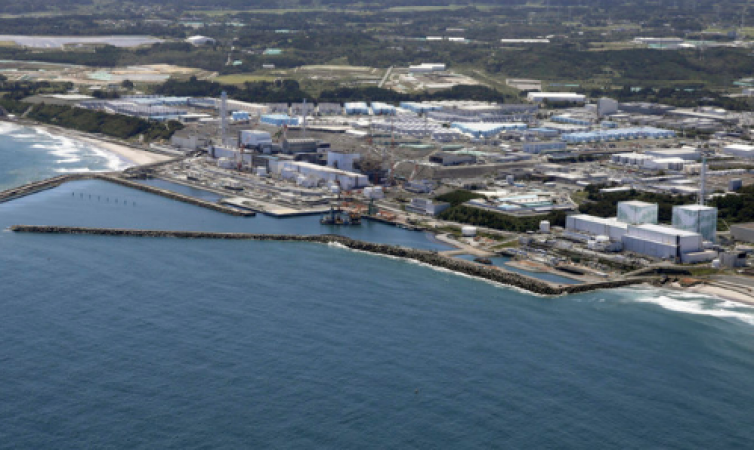
Tokyo: On Thursday, Japan will begin discharging treated radioactive water from the wrecked Fukushima nuclear power plant into the Pacific Ocean. China has strongly opposed this plan and imposed import bans on seafood.
Japanese fishing organisations expressed concern that the release would harm their reputation.
Japan has insisted that the release of water is secure. The UN nuclear watchdog, the International Atomic Energy Agency (IAEA), also approved the plan in July, stating that it met international standards and that its potential effects on people and the environment were "negligible."
Despite these assurances, the Chinese-ruled territories of Hong Kong and Macau have announced they will begin implementing a ban on Japanese seafood from areas like the capital Tokyo and Fukushima on Thursday.
The foreign ministry announced on Wednesday that China would also take the necessary steps to safeguard the marine environment, food safety, and general public health.
Japan has embarked on a significant step by commencing the controlled discharge of treated radioactive water from the Fukushima Daiichi nuclear power plant into the Pacific Ocean. This decision, however, has ignited fierce opposition from neighboring countries and experts who harbor reservations regarding its potential consequences.
The treated water has undergone a purification process aimed at eliminating the majority of radioactive isotopes. Yet, certain experts have voiced apprehensions about potential residual health risks. The Japanese government asserts that this release is imperative to free up space for the storage of additional radioactive water at the facility.
Also Read: Senior Doctors Set to Stage Strike Amid October Conservative Conference, Reports Financial Times
Local fishermen have responded with outrage, fearing detrimental impacts on their livelihoods. Beyond domestic concerns, China and South Korea have also expressed their misgivings, hinting at the potential curbing of Japanese seafood imports.
In the midst of these tensions, the International Atomic Energy Agency (IAEA) is diligently overseeing the situation. While the IAEA deems the release as safe, it acknowledges the absence of a unanimous scientific consensus regarding the long-term repercussions of introducing treated radioactive water into the ocean.
This move underscores the intricate nature of the Fukushima crisis, amplifying the profound challenges it continues to pose. The release stimulates contemplation about Japan's stance on nuclear power and its global implications.
Key aspects of the Fukushima water release include:
The release of Fukushima's treated water is a multi-faceted quandary devoid of easy resolutions. Backed by the most robust scientific understanding available, this decision is destined to trigger ongoing discussions over an extended period. As the world scrutinizes this development, it serves as a poignant reminder of the intricate aftermath of the Fukushima nuclear disaster, while simultaneously casting a spotlight on the global trajectory of nuclear energy.